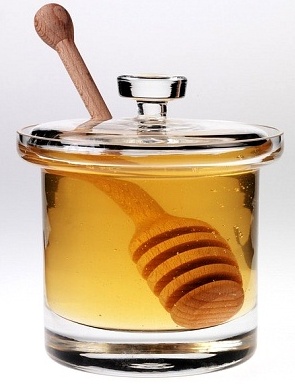 With the trend for kitchen cupboard beauty continuing to grow, we're increasingly finding more uses for honey than spreading on our toast. The global skincare market is tipping back in favour of natural ingredients, and a recent Mintel survey found that 76 per cent of consumers are interested in honey-based products. Meanwhile, some of healthy's favourite beauty brands, such as Dr Organic, Andalou, and Manuka Doctor (Kourtney Kardashian is its ambassador), use honey as an active ingredient.
With the trend for kitchen cupboard beauty continuing to grow, we're increasingly finding more uses for honey than spreading on our toast. The global skincare market is tipping back in favour of natural ingredients, and a recent Mintel survey found that 76 per cent of consumers are interested in honey-based products. Meanwhile, some of healthy's favourite beauty brands, such as Dr Organic, Andalou, and Manuka Doctor (Kourtney Kardashian is its ambassador), use honey as an active ingredient.It may be hot in the beauty industry right now, but its cosmetic use goes far back in time. 'The ancient Greeks and Egyptians used honey on skin conditions ranging from wounds and acne, as well as for skin repair to combat ageing,' says Dr Firas Al-Niaimi, dermatologist and clinic director at skin.
Hive of activity
Natural honey is packed with skin-friendly nutrients, explains Dija Ayodele, facialist and founder of skincare range 3107. 'It's rich in B vitamins and micro minerals, such as copper, iron and calcium, which all play a part in keeping skin healthy and supporting the ageing process.' But hold back before slapping any old runny variety on your face: Ayodele highlights the importance of quality. 'Bog-standard honey goes through a cleaning process that generally removes the beauty benefits. Also, this honey is often watered down or sweetened, so it isn't as effective.'
Which type?
Raw honey is used in creams and salves to relieve dry, flaky skin conditions, like low-level eczema, dermatitis and dandruff, says Ayodele. 'It's a source of enzymes, proteins, antibiotics and natural hydroxy acids, such as gluconic acid, which acts as a mild exfoliant to slough away dead skin cells and brighten skin tone.'However, raw honey should never be used on open wounds, she adds. 'It's 100 per cent natural and, at its most potent, it can contain organisms that can be harmful to the skin and body.' That's why, for problems such as eczema and dermatitis where skin might have become broken, Ayodele recommends highest-grade active manuka (see below). Due to its antimicrobial quality, this honey is effective at calming the red and yellow spots associated with inflammatory acne, adds Dr Al-Niaimi.
Do grades matter?
You'll often see a unique manuka factor (UMF) on manuka honey pots. This trademarked rating system from New Zealand relates to its bacteria-killing bioactive compounds. (Some brands use the rating non-peroxide activity - NPA - the lab term for UMF and graded the same way.) For skincare, the higher the better, says Ayodele; aim for a rating of 12+ and above.